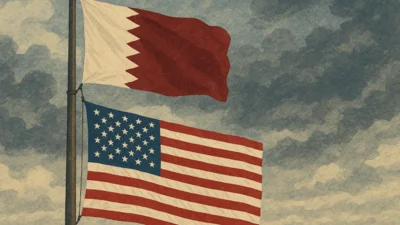Dear Inspector General Atkinson:
On Aug. 12, 2019, your office received a disclosure from a whistleblower in the Intelligence Community. In accordance with legal requirements, you performed a preliminary review and determined that the disclosure appeared credible and met the definition of an “urgent concern." According to public news reports, a second whistleblower who has shared related information with your office has also obtained legal counsel.
As you know, reprisal against whistleblowers who make a lawful disclosure to your office or the Congressional Intelligence Committees is prohibited under the law. However, since the first whistleblower complaint became public, the whistleblower has been the subject of repeated attacks from the President of the United States-including attempts to identity the whistleblower and questioning his or her motivations and loyalty to the nation. The President even stated, in reference to individuals who spoke with the whistleblower, “You know what we used to do in the old days when we were smart with spies and treason, right? We used to handle it a little differently than we do now." We are deeply concerned by the impact these comments could have on individuals’ willingness to report wrongdoing through authorized channels.
Whistleblowers help hold the federal government accountable to the law and to the American people. Whistleblower processes and protections are especially important in the Intelligence Community, where they serve a dual purpose: encouraging reporting of fraud, waste, and abuse, while ensuring that classified information is not shared inappropriately. In other words, having a reliable, lawful whistleblower process for members of the Intelligence Community is critical for protecting our country’s national security.
As the Inspector General of the Intelligence Community, you have been charged with investigating whistleblower claims, protecting whistleblowers’ confidentiality, helping whistleblowers contact the appropriate congressional committees, and investigating allegations of retaliation. I appreciate your diligent efforts to comply with the law.
To ensure that the brave men and women who have followed the law and reported wrongdoing to your office are being sufficiently protected from retaliation, I ask that you respond to the following no later than Nov. 14, 2019:
1. Please explain the importance of confidentiality for whistleblowers, and what impact efforts to violate that confidentiality can have, particularly in the Intelligence Community.
2. What steps does your office take to protect the confidentiality of whistleblowers?
3. Whistleblowers who make lawful disclosures are entitled to protections from retaliation.
a. Please describe the steps that supervisors are expected to take to ensure that whistleblowers do not face retaliation.
b. Please explain what steps your Office has taken to help ensure that whistleblowers are protected from retaliation.
4. As stated above, the President has repeatedly disparaged a whistleblower in the Intelligence Community and reportedly attempted to find out his or her identity. What impact do you anticipate this will have on the following, as these relate to members of the Intelligence Community: (1) lawful disclosures made by whistleblowers; (2) willingness to identify and report potentially illegal and/or improper activity; (3) the perception that lawful disclosures will be shared with appropriate officials and investigated; and (4) the perception that whistleblowers who make lawful disclosures will be protected?
Thank you for your dedicated service, and your prompt attention to this matter.
Source: U.S. Senate Committee on Homeland Security and Governmental Affairs







